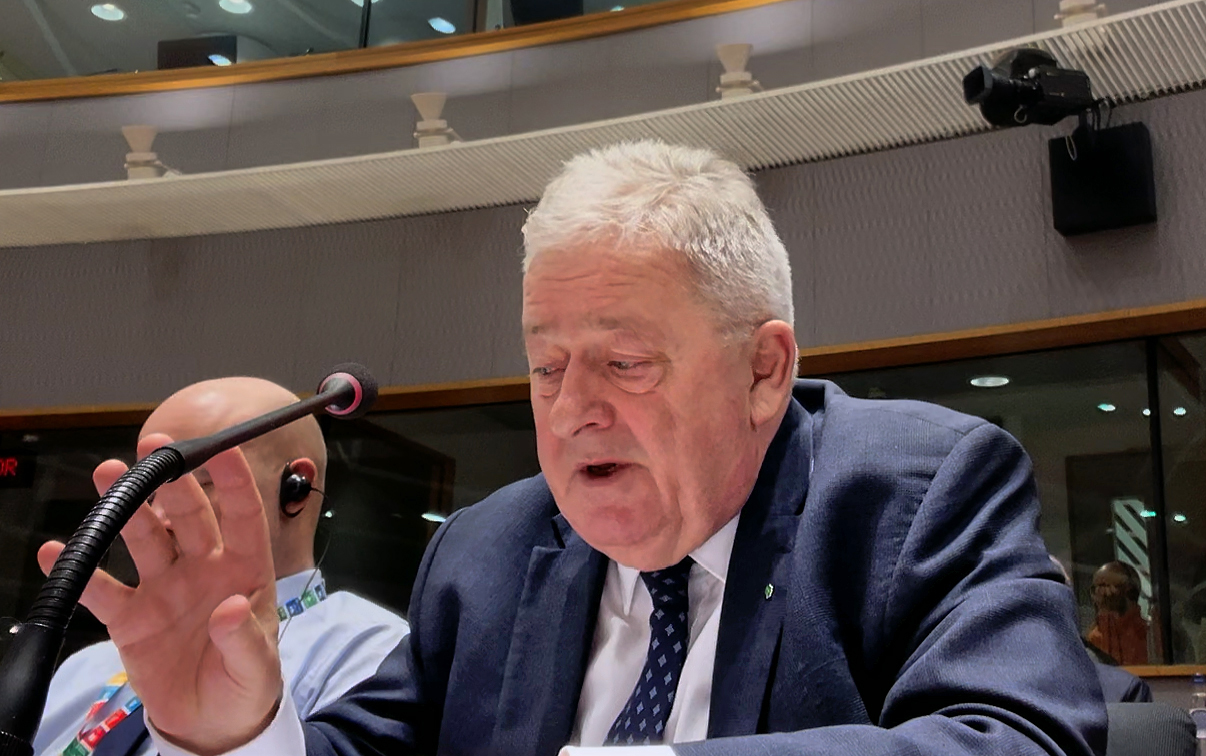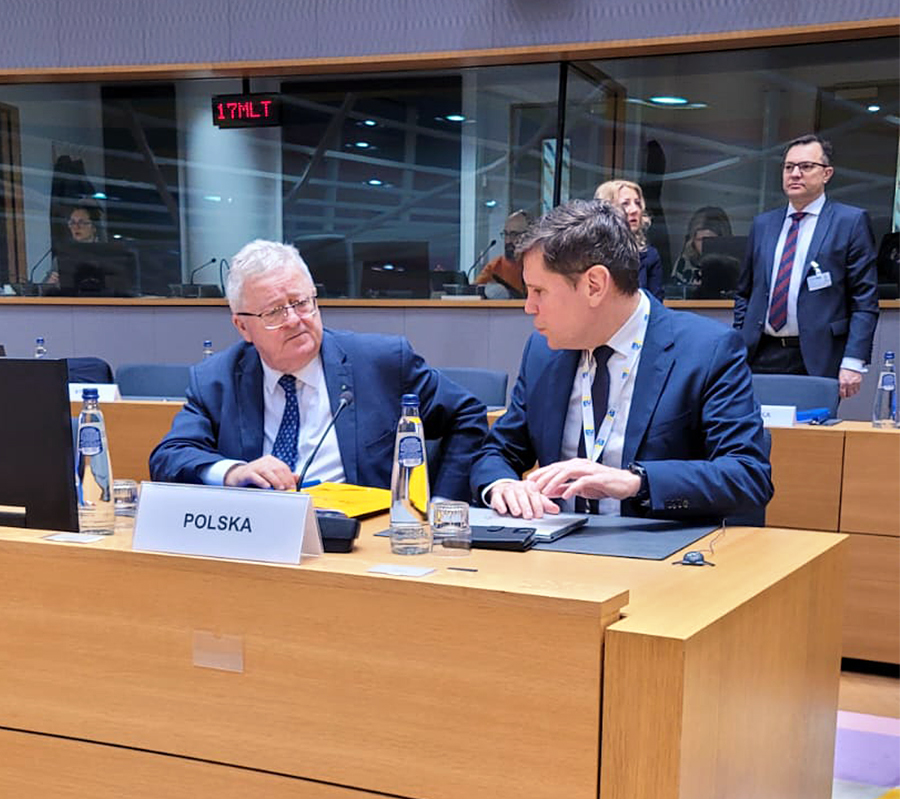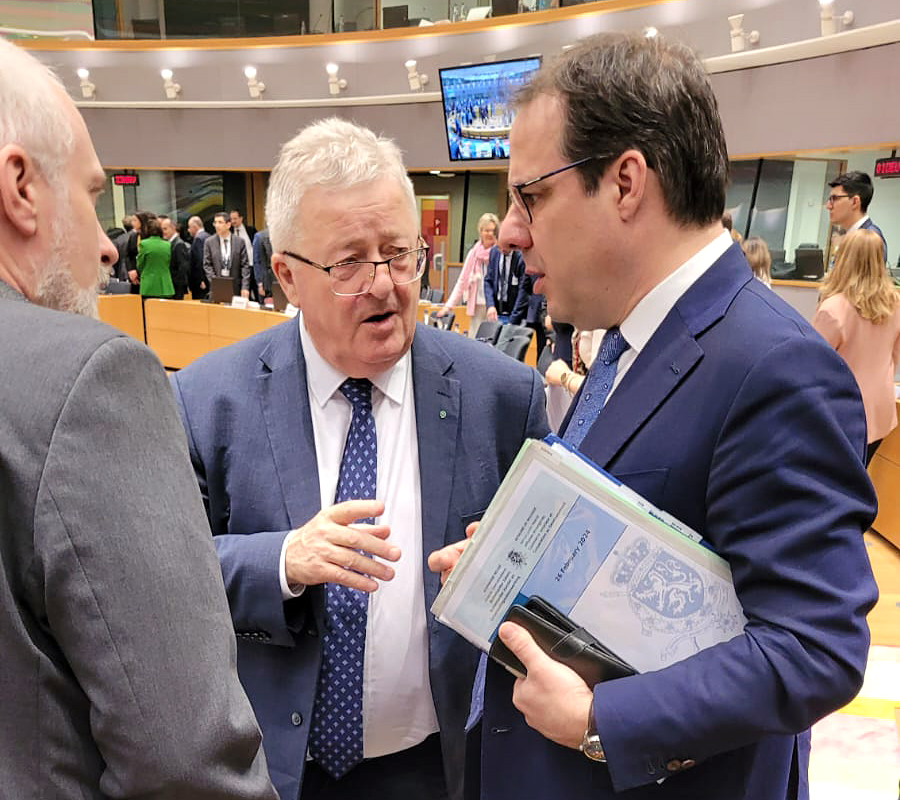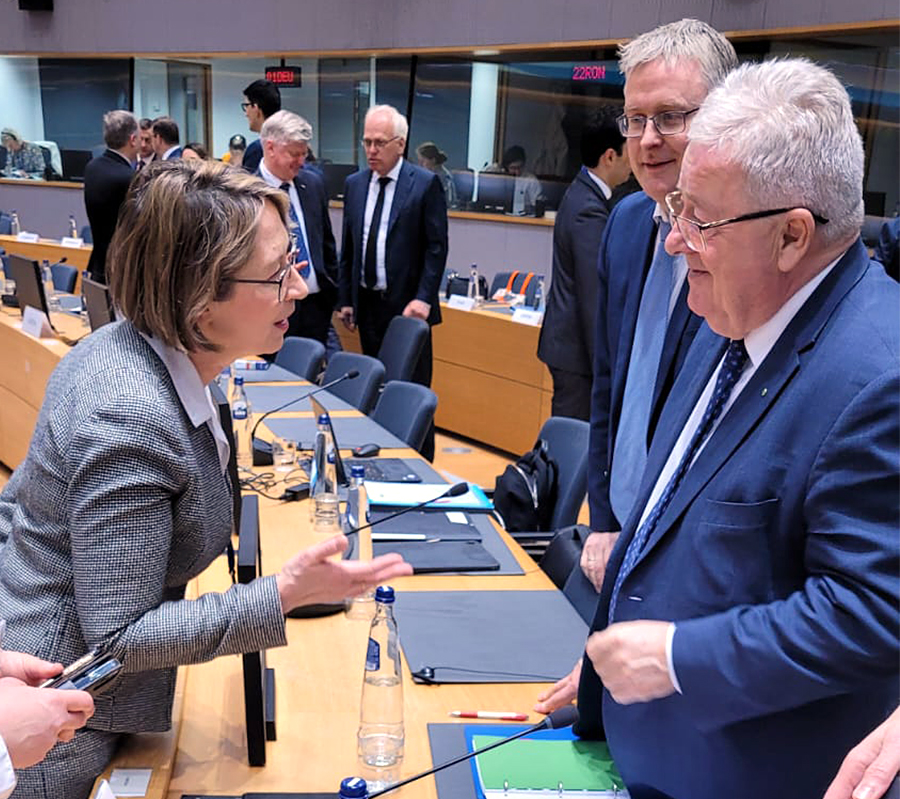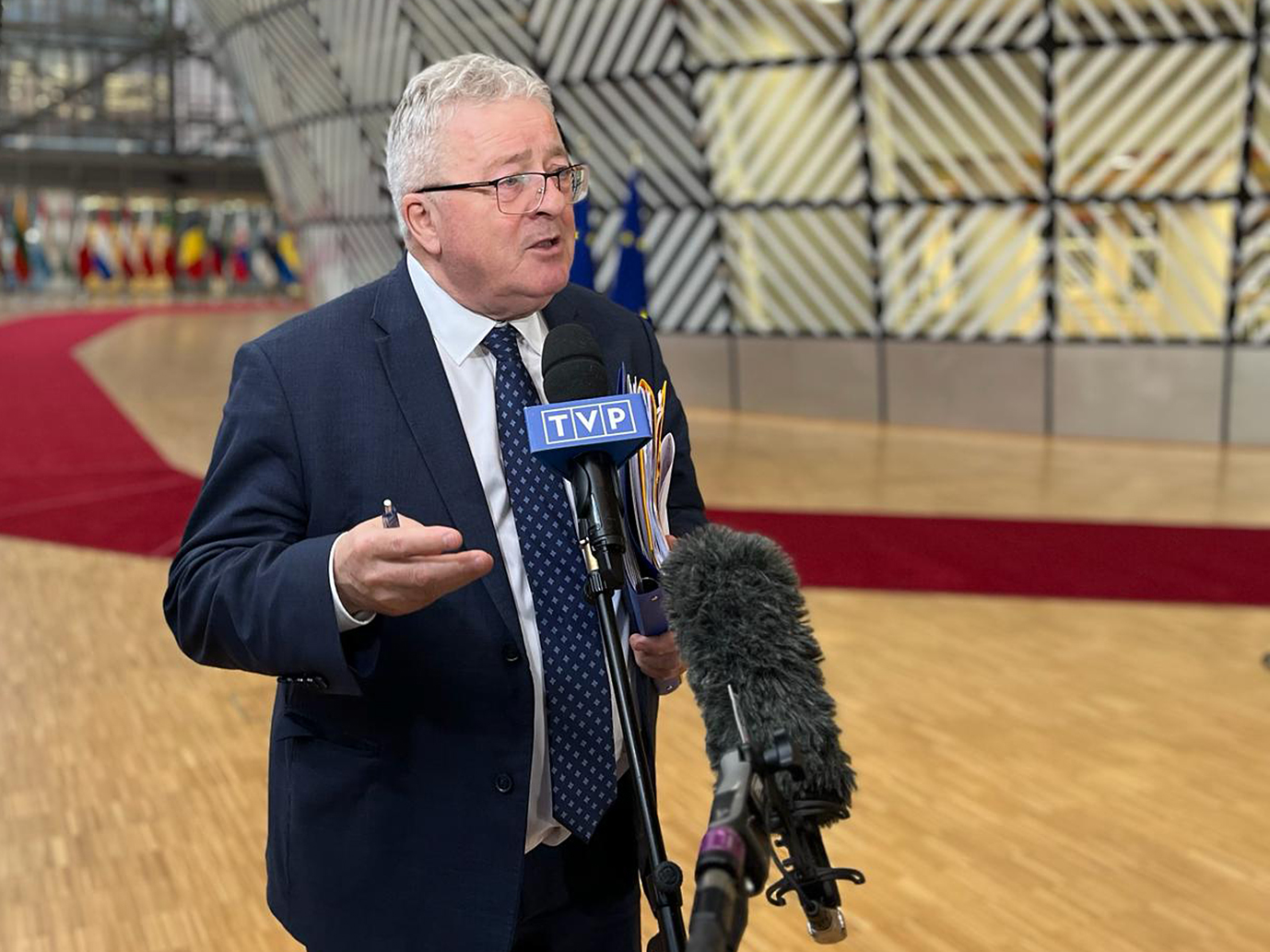Various irrational requirements of the Green Deal must be revoked
26.02.2024
– Various irrational requirements of the Green Deal must be revoked. The European Commission needs to understand the protesting farmers. The farmers say: nothing about us, without us. The letter by President Norbert Lins shows that the European Parliament also expects quick action – as Minister Czesław Siekierski said today, during the meeting of the EU Agriculture and Fisheries Council (AGRIFISH).

Causes of protests
– Today’s discussion is very important since it will answer the question: why are the farmers protesting? – stressed the head of the Polish delegation at the AGRIFISH meeting.
Minister Czesław Siekierski informed that talks with the farmers were ongoing. He said that the farmers were demanding fundamental changes and even a waiver of the Green Deal which, in their opinion, was irrational. They consider that the excessive inflow of goods from outside the Union, including from Ukraine, into the European market undermines their competitiveness.
Low incomes
– Farmers’ incomes are very low. This also results from inflation, but also from the above-mentioned causes – pointed out the Polish minister.
– Therefore, we need action today – really today. The situation of farmers is difficult and we need to give a clear signal that significant, concrete simplifications that farmers are waiting for will be introduced – appealed Minister Czesław Siekierski.
Excessive import from Ukraine
The head of the Polish delegation also stated that another cause of the farmers’ protests was the excessive import of agri-food goods from Ukraine.
– There is no doubt that we need to help Ukraine. But opening up to the import of agricultural products into the Union cannot take the form it has today. Farmers from Poland and other EU countries will not stand the competition. We need the greater protection of the EU market, here and now, as well as adequate long-term mechanisms – said the Minister.
Assessment of the European Commission’s action
The European Commission assessed the simplification proposals submitted by the Member States and presented a roadmap for further action.
– In our opinion, in many areas the European Commission’s proposals are insufficient and do not respond to the expectations of farmers – stressed the head of the Polish delegation.
According to Minister Siekierski, the European Commission should also make the deadlines for introducing important solutions, including amendments to the basic acts, more realistic and faster. Moreover, it cannot justify the lack of action by the need to respect the decisions of the co-legislators of 2021. Those were different times. There was no war. The Commission must take into account the situation that we have now.
– We know that in extraordinary situations the EC may change a lot if it has the will to change and is determined. And in completely exceptional situations, political decisions can be made at the level of the European Council, i.e. prime ministers and presidents – stressed Minister Czesław Siekierski during his speech.
He also stressed that, contrary to the European Commission’s statement, the new delivery model does not give the countries significant freedom in shaping Strategic Plans.
– I remember what action was promised when I was in the European Parliament: that many decisions will be made at national level. Is that really so? – asked the Minister rhetorically.
GAEC 6, GAEC 7 and GAEC 8 standards
The head of the Polish delegation pointed out that this applied, in particular, to conditionality, e.g. in the GAEC 8 standards the requirements have been defined at the level of the fundamental rule and directly impose on farmers the meeting of specific obligations, e.g. fallowing at the level of 4%. In addition, the countries had no full freedom to design the GAEC 6 and GAEC 7 requirements in the light of the European Commission’s assurances expressed in its document.
– We expect that the Commission will work closely with the Member States so as to implement, as soon as possible, amendments to the Strategic Plans which contribute to reasonable simplifications – stressed the Polish Minister.
Poland also submitted amendments to simplifications regarding GAEC 6 and GAEC 7.
Minister’s appeal to the European Commission
– We call upon to the Commission to immediately submit, for 2024, a derogation from the application of the GAEC 6, GAEC 7 and GAEC 8 standards, since the derogation proposed by the Commission for 2024 does not solve the problems faced by the farmers – appealed the Minister at the EU Agriculture and Fisheries Council meeting.
GAEC 8
Poland is requesting a complete waiver of the designation of 4% of the area for non-production areas, including land lying fallow under GAEC 8. This is a derogation different from the one used in 2023, when the farmers still had to declare fallow land in the area of 4% where they could only cultivate food crops exclusive of soybean, maize, short rotation coppice.
Therefore, in Poland’s opinion, the conditions of Article 148(1) of the Regulation 2115/2021 are met.
GAEC 7
– We are also requesting to introduce a derogation from the GAEC 7 standard in 2024. It would consist in allowing a possibility of cultivating, on the same area, the same crops as in 2023 and waiving of other requirements under this standard, e.g. crop diversification – said Minister Czesław Siekierski.
Waiver of sanctions
– We are also requesting a waiver of sanctions for non-compliance with conditionality if this results from the difficult situation currently prevailing in the market – added the Minister.
The head of the Polish delegation also expressed support for the European Commission’s initiative in that respect, but, at the same time, pointed out that it was necessary to issue a legally binding act declaring this difficult situation as extraordinary circumstances or force majeure.
– We are waiting for the Commission’s document regarding this issue, not for doubtful and vague explanations –stressed Minister Czesław Siekierski.
Documents provided to the Presidency
At the end of his speech, the Minister pointed to the proposals important for Poland, which had been provided to the Presidency:
- GAEC 8 – existing conditionality obligations should be ultimately removed and finally turned into eco-schemes voluntary for farmers
- GAEC 6 – should apply only to areas with water and wind erosion, not to the whole country. The Member States know which areas this applies to.
Issue of compensation and excess of grain
In the summary of the speech, the Minister called upon the European Commission to assess the amendments to the Strategic Plan more efficiently and quickly.
Finally, the Polish delegation supported the position of Slovakia, the Italian delegation and Romania’s proposal.
– Because of the Green Deal and the excessive opening of the market, the farmers incur significant costs. They expect compensation, both from the EU and from national budgets – said the Polish minister.
– The problem that is not talked about is the excess of grain in the European Union. The European Commission must take measures to reduce grain stocks. I think it is possible. It would be enough to support export – humanitarian aid to the regions of the world invaded by Russia. This would also contribute to regaining the markets occupied by Russia by Europe and Ukraine – added the head of the Polish delegation at the end of this speech.
Meeting with the farmers
Minister Czesław Siekierski also attended a meeting with the farmers protesting today in Brussels.

